- Home
- D. H. Lawrence
The Trespasser Page 13
The Trespasser Read online
Page 13
_Chapter 13_
In the morning, after bathing, Siegmund leaned upon the seawall in akind of reverie. It was late, towards nine o'clock, yet he lounged,dreamily looking out on the turquoise blue water, and the white haze ofmorning, and the small, fair shadows of ships slowly realizing beforehim. In the bay were two battleships, uncouth monsters, lying as naiveand curious as sea-lions strayed afar.
Siegmund was gazing oversea in a half-stupid way, when he heard a voicebeside him say:
'Where have they come from; do you know, sir?'
He turned, saw a fair, slender man of some thirty-five years standingbeside him and smiling faintly at the battleships.
'The men-of-war? There are a good many at Spithead,' said Siegmund.
The other glanced negligently into his face.
'They look rather incongruous, don't you think? We left the sea emptyand shining, and when we come again, behold, these objects keeping theireye on us!'
Siegmund laughed.
'You are not an Anarchist, I hope?' he said jestingly.
'A Nihilist, perhaps,' laughed the other. 'But I am quite fond of theCzar, if pity is akin to love. No; but you can't turn round withoutfinding some policeman or other at your elbow--look at them, abominableironmongery!--ready to put his hand on your shoulder.'
The speaker's grey-blue eyes, always laughing with mockery, glanced fromthe battleships and lit on the dark blue eyes of Siegmund. The latterfelt his heart lift in a convulsive movement. This stranger ran soquickly to a perturbing intimacy.
'I suppose we are in the hands of--God,' something moved Siegmund tosay. The stranger contracted his eyes slightly as he gazed deep atthe speaker.
'Ah!' he drawled curiously. Then his eyes wandered over the wet hair,the white brow, and the bare throat of Siegmund, after which theyreturned again to the eyes of his interlocutor. 'Does the Czar sail thisway?' he asked at last.
'I do not know,' replied Siegmund, who, troubled by the other'spenetrating gaze, had not expected so trivial a question.
'I suppose the newspaper will tell us?' said the man.
Sure to,' said Siegmund.
'You haven't seen it this morning?'
'Not since Saturday.'
The swift blue eyes of the man dilated. He looked curiously at Siegmund.
'You are not alone on your holiday?'
'No.' Siegmund did not like this--he gazed over the sea in displeasure.
'I live here--at least for the present--name, Hampson--'
'Why, weren't you one of the first violins at the Savoy fifteen yearsback?' asked Siegmund.
They chatted awhile about music. They had known each other, had beenfairly intimate, and had since become strangers. Hampson excused himselffor having addressed Siegmund:
'I saw you with your nose flattened against the window,' he said, 'andas I had mine in the same position too, I thought we were fit to bere-acquainted.'
Siegmund looked at the man in astonishment.
'I only mean you were staring rather hard at nothing. It's a pity to tryand stare out of a beautiful blue day like this, don't you think?'
'Stare beyond it, you mean?' asked Siegmund.
'Exactly!' replied the other, with a laugh of intelligence. 'I call aday like this "the blue room". It's the least draughty apartment in allthe confoundedly draughty House of Life.'
Siegmund looked at him very intently. This Hampson seemed to expresssomething in his own soul.
'I mean,' the man explained, 'that after all, the great mass of lifethat washes unidentified, and that we call death, creeps through theblue envelope of the day, and through our white tissue, and we can'tstop it, once we've begun to leak.'
'What do you mean by "leak"?' asked Siegmund.
'Goodness knows--I talk through my hat. But once you've got a bit tiredof the house, you glue your nose to the windowpane, and stare for thedark--as you were doing.'
'But, to use your metaphor, I'm not tired of the House--if you meanLife,' said Siegmund.
'Praise God! I've met a poet who's not afraid of having his pocketpicked--or his soul, or his brain!' said the stranger, throwing his headback in a brilliant smile, his eyes dilated.
'I don't know what you mean, sir,' said Siegmund, very quietly, with astrong fear and a fascination opposing each other in his heart.
'You're not tired of the House, but of your own particular room-say,suite of rooms--'
'Tomorrow I am turned out of this "blue room",' said Siegmund with a wrysmile. The other looked at him seriously.
'Dear Lord!' exclaimed Hampson; then: 'Do you remember Flaubert's saint,who laid naked against a leper? I could _not_ do it.'
'Nor I,' shuddered Siegmund.
'But you've got to-or something near it!'
Siegmund looked at the other with frightened, horrified eyes.
'What of yourself?' he said, resentfully.
'I've funked-ran away from my leper, and now am eating my heart out, andstaring from the window at the dark.'
'But can't you _do_ something?' said Siegmund.
The other man laughed with amusement, throwing his head back and showinghis teeth.
'I won't ask you what _your_ intentions are,' he said, with delicateirony in his tone. 'You know, I am a tremendously busy man. I earn fivehundred a year by hard work; but it's no good. If you have acquired aliking for intensity in life, you can't do without it. I mean vivid soulexperience. It takes the place, with us, of the old adventure, andphysical excitement.'
Siegmund looked at the other man with baffled, anxious eyes.
'Well, and what then?' he said.
'What then? A craving for intense life is nearly as deadly as any othercraving. You become a _concentre_, you feed your normal flame withoxygen, and it devours your tissue. The soulful ladies of romance arealways semi-transparent.'
Siegmund laughed.
'At least, I am quite opaque,' he said.
The other glanced over his easy, mature figure and strong throat.
'Not altogether,' said Hampson. 'And you, I should think, are one whoseflame goes nearly out, when the stimulant is lacking.'
Siegmund glanced again at him, startled.
'You haven't much reserve. You're like a tree that'll flower till itkills itself,' the man continued. 'You'll run till you drop, and thenyou won't get up again. You've no dispassionate intellect to control youand economize.'
'You're telling me very plainly what I am and am not,' said Siegmund,laughing rather sarcastically. He did not like it.
'Oh, it's only what I think,' replied Hampson. 'We're a good deal alike,you see, and have gone the same way. You married and I didn't; but womenhave always done as they liked with me.'
'That's hardly so in my case,' said Siegmund.
Hampson eyed him critically.
'Say one woman; it's enough,' he replied.
Siegmund gazed, musing, over the sea.
'The best sort of women--the most interesting--are the worst for us,'Hampson resumed. 'By instinct they aim at suppressing the gross andanimal in us. Then they are supersensitive--refined a bit beyondhumanity. We, who are as little gross as need be, become theirinstruments. Life is grounded in them, like electricity in the earth;and we take from them their unrealized life, turn it into light orwarmth or power for them. The ordinary woman is, alone, a greatpotential force, an accumulator, if you like, charged from the source oflife. In us her force becomes evident.
'She can't live without us, but she destroys us. These deep, interestingwomen don't want _us_; they want the flowers of the spirit they cangather of us. We, as natural men, are more or less degrading to them andto their love of us; therefore they destroy the natural man in us--thatis, us altogether.'
'You're a bit downright are you not?' asked Siegmund, deprecatingly. Hedid not disagree with what his friend said, nor tell him such statementswere arbitrary.
'That's according to my intensity,' laughed Hampson. 'I can open theblue heaven with looking, and push back the doors of day a little, and
see--God knows what! One of these days I shall slip through. Oh, I amperfectly sane; I only strive beyond myself!'
'Don't you think it's wrong to get like it?' asked Siegmund.
'Well, I do, and so does everybody; but the crowd profits by us in theend. When they understand my music, it will be an education to them; andthe whole aim of mankind is to render life intelligible.'
Siegmund pondered a little....
'You make me feel--as if I were loose, and a long way off from myself,'he said slowly.
The young man smiled, then looked down at the wall, where his own handslay white and fragile, showing the blue veins.
'I can scarcely believe they are me,' he said. 'If they rose up andrefused me, I should not be surprised. But aren't they beautiful?'
He looked, with a faint smile, at Siegmund.
Siegmund glanced from the stranger's to his own hands, which lay curvedon the sea-wall as if asleep. They were small for a man of his stature,but, lying warm in the sun, they looked particularly secure in life.Instinctively, with a wave of self-love, he closed his fists overhis thumbs.
'I wonder,' said Hampson softly, with strange bitterness, 'that shecan't see it; I wonder she doesn't cherish you. You are full andbeautiful enough in the flesh--why will she help to destroy you, whenshe loved you to such extremity?'
Siegmund looked at him with awe-stricken eyes. The frail, swift man,with his intensely living eyes, laughed suddenly.
'Fools--the fools, these women!' he said. 'Either they smash their owncrystal, or it revolts, turns opaque, and leaps out of their hands. Lookat me, I am whittled down to the quick; but your neck is thick withcompressed life; it is a stem so tense with life that it will hold up byitself. I am very sorry.'
All at once he stopped. The bitter despair in his tone was the voice ofa heavy feeling of which Siegmund had been vaguely aware for some weeks.Siegmund felt a sense of doom. He laughed, trying to shake it off.
'I wish I didn't go on like this,' said Hampson piteously. 'I wish Icould be normal. How hot it is already! You should wear a hat. It isreally hot.' He pulled open his flannel shirt.
'I like the heat,' said Siegmund.
'So do I.'
Directly, the young man dashed the long hair on his forehead into somesort of order, bowed, and smiling in his gay fashion, walked leisurelyto the village.
Siegmund stood awhile as if stunned. It seemed to him only a painfuldream. Sighing deeply to relieve himself of the pain, he set off tofind Helena.

 Look! We Have Come Through!
Look! We Have Come Through! Women in Love
Women in Love The Ladybird
The Ladybird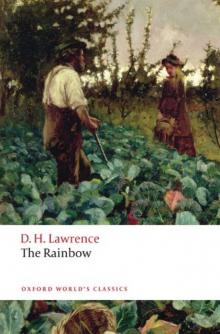 The Rainbow
The Rainbow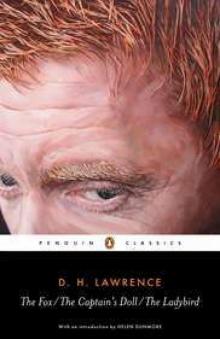 The Captain's Dol
The Captain's Dol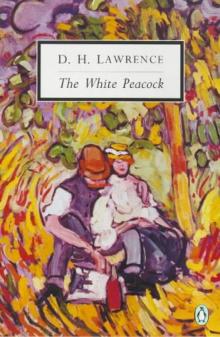 The White Peacock
The White Peacock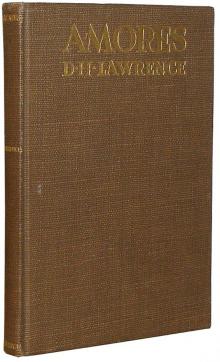 Amores
Amores Lady Chatterley's Lover
Lady Chatterley's Lover Touch and Go
Touch and Go The Wintry Peacock
The Wintry Peacock Life with a Capital L
Life with a Capital L The Lost Girl
The Lost Girl Sons and Lovers
Sons and Lovers England, My England
England, My England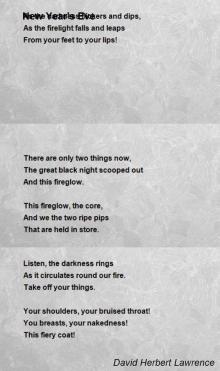 New Poems
New Poems Twilight in Italy
Twilight in Italy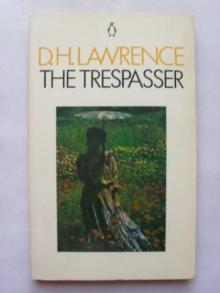 The Trespasser
The Trespasser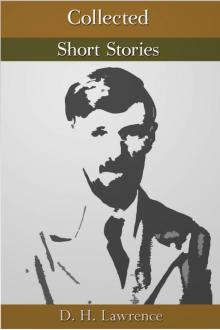 The Collected Short Stories
The Collected Short Stories The First Lady Chatterley's Lover
The First Lady Chatterley's Lover Kangaroo
Kangaroo Bay
Bay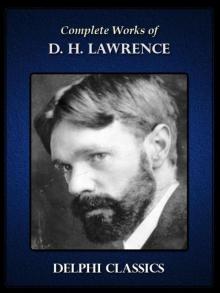 Complete Works of D.H. Lawrence
Complete Works of D.H. Lawrence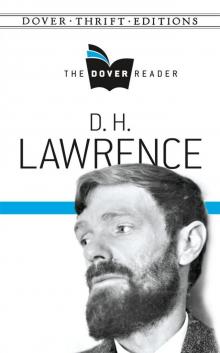 D H Lawrence- The Dover Reader
D H Lawrence- The Dover Reader The Rainbow (100th Anniversary ed.)
The Rainbow (100th Anniversary ed.)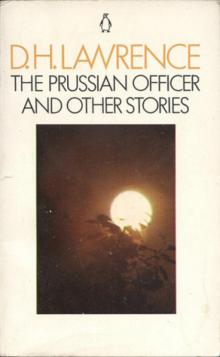 The Prussian Officer
The Prussian Officer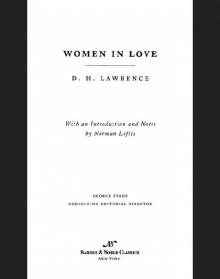 Women in Love (Barnes & Noble Classics Series)
Women in Love (Barnes & Noble Classics Series) John Thomas and Lady Jane
John Thomas and Lady Jane The Bad Side of Books
The Bad Side of Books Sons and Lovers (Barnes & Noble Classics Series)
Sons and Lovers (Barnes & Noble Classics Series) Selected Stories
Selected Stories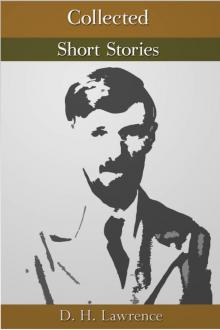 Collected Short Stories
Collected Short Stories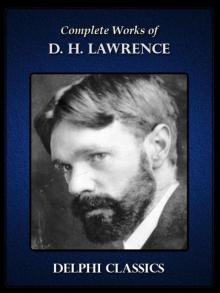 Complete Works of D.H. Lawrence (Illustrated)
Complete Works of D.H. Lawrence (Illustrated)